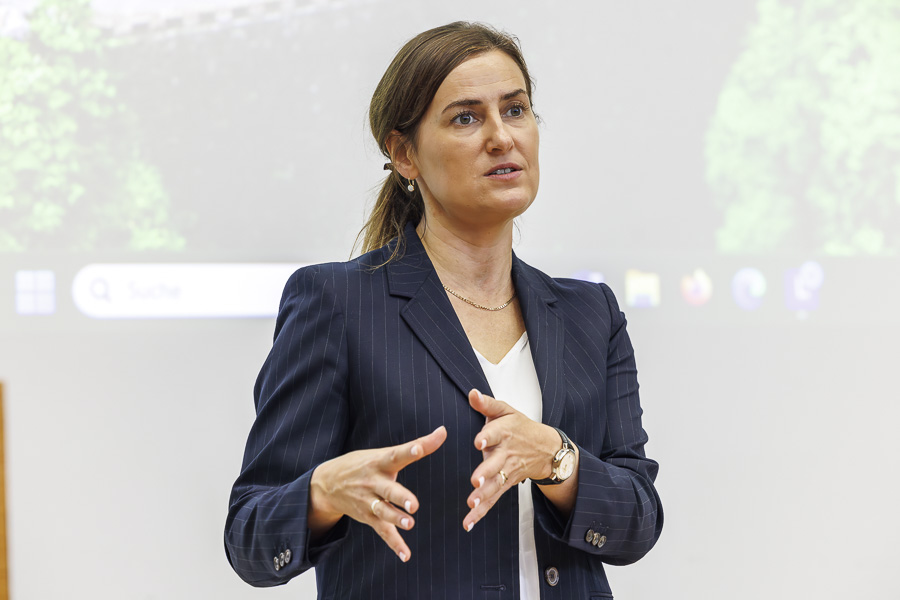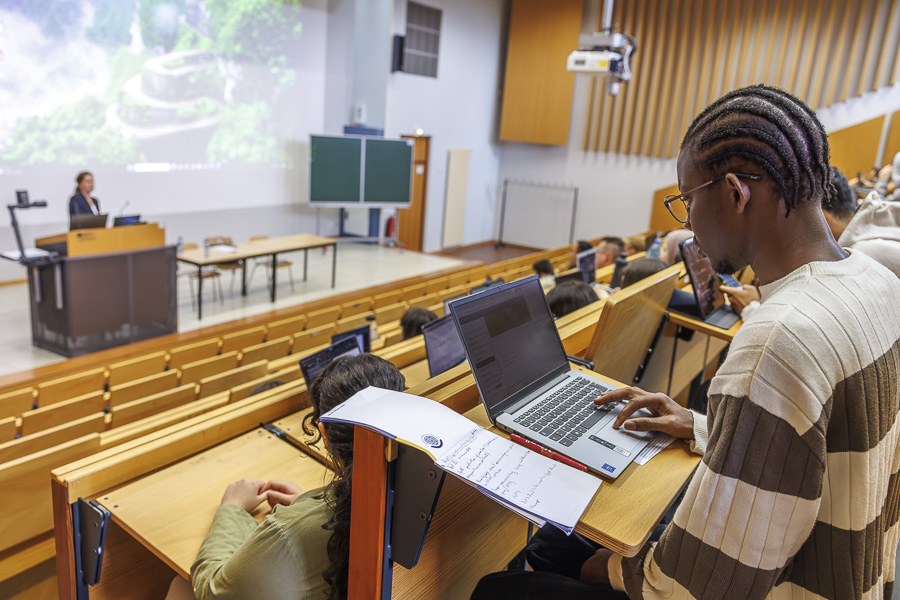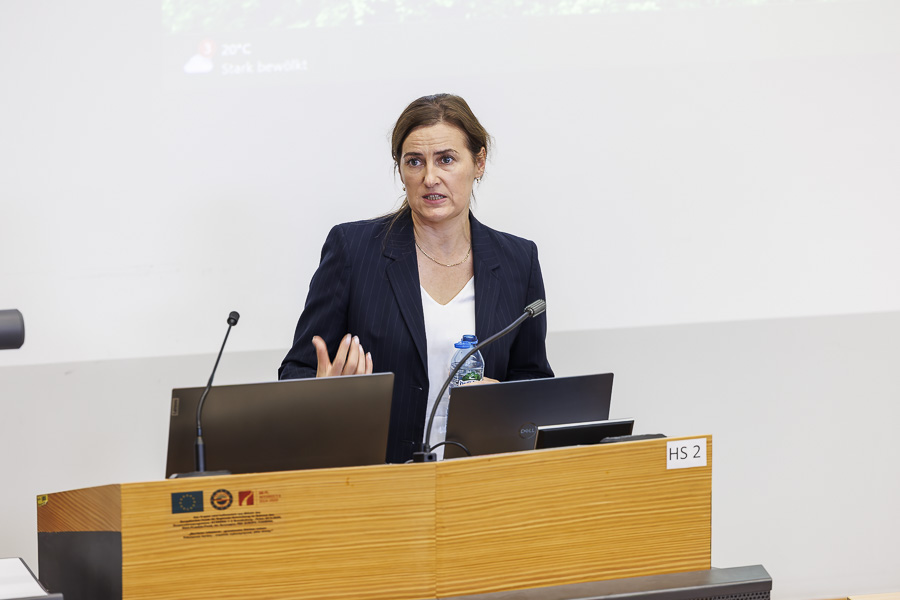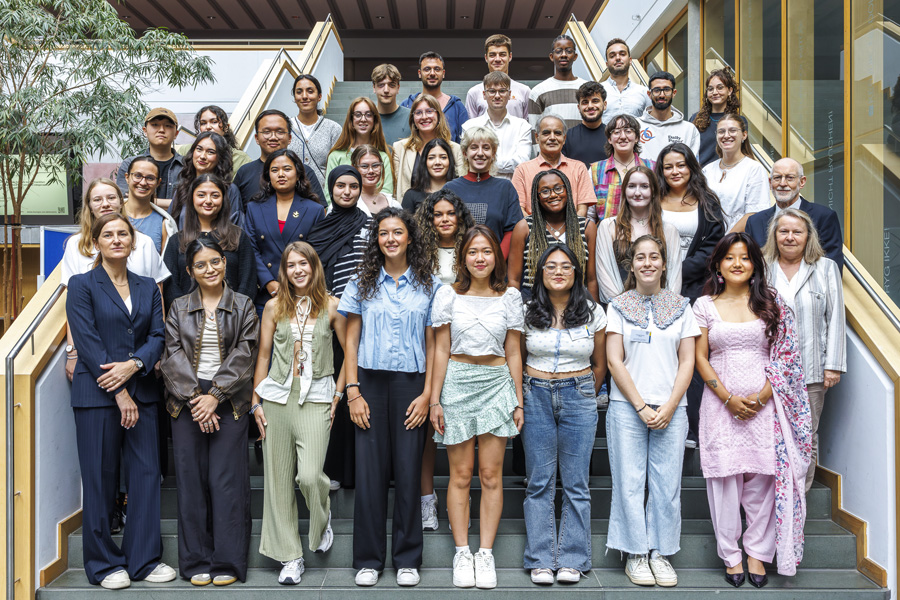"We should believe in justice" - Anna Adamska-Gallant on her work at the European Court of Human Rights
Almost 50 students from Nepal, Senegal, Argentina, Croatia and many other countries are currently studying the protection of human rights in Europe at the Viadrina. At the two-week summer school "The European System of Human Rights Protection", they are learning from international experts from academia and practice. On 11 July 2025, Polish lawyer Anna Adamska-Gallant reported on her work as a judge at the European Court of Human Rights.
From Anna Adamska-Gallant's perspective, the European Court of Human Rights (ECHR) made history during the week of her visit to Viadrina: For the first time, it has condemned Russia for systematic human rights violations in its war against Ukraine. "This is a historic judgement. You could argue that the court chose very harsh statements here, but everything is backed up by evidence," the Polish lawyer explained the significance of the judgement to the participants of the summer school.
gallery summer school human rights protection
The ECHR worked like the International Criminal Court (ICC) normally does due to Russia's lack of participation in the proceedings and documented Russia's responsibility for human rights violations in detail. The result: the European court found violations of the right to life, the prohibition of torture and the protection of family life, among other things. The judges criticised indiscriminate military attacks, executions of civilians and Ukrainian military personnel, torture and expulsion, as well as the suppression of the Ukrainian language in schools. Anna Adamska-Gallant conceded that the judgement would not initially have any consequences for Russia. "But it is very important for the victims to be heard and to see that an international court is representing their rights, even if Russia does not respond," she argued. No other court could hold Russia responsible. "Justice takes time," she said, recalling the prosecution of German crimes in the Second World War or the atrocities in the Yugoslav war, which were sometimes dealt with decades later. "We should believe in justice and human rights," she appealed.
In the run-up to the lecture, Prof. Dr Carmen Thiele, who organised the summer school and invited the high-profile guest speakers, urged the participants: "Ask questions, the opportunity will not come again so quickly!" And they did. Among other things, they asked about the judge's day-to-day work, the boundaries between national and European jurisdiction and the challenges of international legal work. Anna Adamska-Gallant explained that as a judge in Poland, she was used to making judgements alone. "As a single judge, there is of course the risk of thinking that you are always right," she said with a smile. Looking back, she described her work as a judge on the EU rule of law mission in Kosovo from 2013 as an "eye-opening experience". "With many other international lawyers, you learn that there are so many different but legitimate perspectives and that your own is not always the most brilliant idea. This has taught me openness and modisty," she said. In the same breath, she advised the participants of the summer school to take as much as possible from international encounters such as the one at the Viadrina. "This opportunity to exchange ideas with international colleagues can only enrich you," she is convinced.
The students - 15 from the Viadrina and twice as many from almost 20 different countries - are intensively involved in this exchange in the joint courses and in the preparation of a moot court - a simulated trial at the European Court of Human Rights, with which the summer school ends on 19 July.
translated bei deepL and edited
Back to the news portal




Share article: